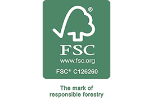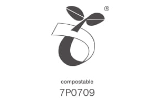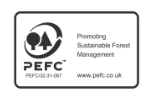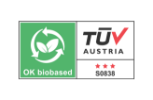

Packaging should be fair
Ecology has many names. Sometimes they are false, or at least highly suspicious. The problem of greenwashing, i.e. pseudo green marketing and PR activities, also affects the packaging sector. In this article we share our knowledge on how to recognise such practices and how to steer clear of them.
Naming- or covering up an unpleasant truth
Language can be used to create reality. The way we name certain things and phenomena determines how they will be perceived by others. This is common knowledge to companies that in their marketing activities use the so-called greenwashing (we wrote about it in THIS article), naming some of their products in a way that is strongly suggestive for their customer.
The most blatant example of this is the name 'ekogroszek'(peacoal) which, due to the '-eko' prefix, was associated with something pro-environmental, even though the product itself had nothing to do with protecting the environment and actually polluted it. Today this has been regulated by law and such a term cannot be used, but the very fact that it was used for many years is a case in point regarding some reprehensible business practices.
We must be aware that if any plastic packaging factory contributing to water, soil and air pollution, uses words like 'eco', 'bio' or 'organic' in its advertising messages, it should be at least puzzling to the customer.
There are, of course, less extreme examples of companies not putting their messages across quite right. For example, information that a package is recyclable is of little value to an environmentally conscious consumer. Many multi-material packs are made up of individual layers of recycled materials, but the combination of these layers makes them not easily separable and therefore prevents any form of recycling. On such packaging you often even see a certificate confirming that the raw material comes from renewable sources. In fact, this label only refers, for example, to the paper layer, which cannot be recovered and recycled anyway.
Quasi-eco labelling

It is often the case that some packaging has a label that deceptively looks like a widely recognised organic certification. Sometimes the very name of such a symbol evokes desirable associations with quality and sustainability. Not every customer will be able to verify the authenticity of such a mark. Driven by manufacturer trust and authority, they buy a product that is only seemingly eco- friendly.
Meanwhile, manufacturers very often invent their own marks and certificates, which only resemble those awarded by recognised certification bodies in appearance and colour. It happens that products bearing such a misleading mark do not refer to any ISO standards, either.
Biodegradable, i.e. harmless to the environment?

"Biodegradable" is an adjective most of us associate with something good. Unfortunately, this positive connotation is also used by less than honest producers who use such names for their packaging in order to make their target customers perceive them as environmentally friendly. Meanwhile, we should bear in mind that every product, including those made of plastic, is biodegradable, because it will decompose SOMEDAY. But the word "someday" is key in this context.
Of course, a 100 percent compostable packaging solution is not always immediately feasible (as we do at SILBO for BIOSIL packaging), but there are many technological options that realistically reduce the negative impact on the environment. It is possible to reduce the plastic content in the product, abandon sometimes problematic multi-materiality, and bet on production using recycled material, etc. However, relying on standard harmful practices and labelling the resulting packaging as "biodegradable" does not indicate an honest approach, but rather an intention to mislead the consumer.
What is the result of such pseudo green strategies?
Some companies, by acting in the manner described above, not only harm the planet and consumers, but also those producers who try to implement truly green concepts.
Customers are sometimes discouraged by misleading and contradictory messages. Subconsciously, they are accompanied by an image of marketing and product "eco-eyewash". And yet not all companies operate in this way. Therefore, it is worth choosing consciously and not losing sight of the more positive examples.
SILBO - we focus on honesty
At SILBO, we care not only about the quality and innovation of our packaging, but also about making it as reliable as possible for you, aware consumers.
Due to the trust you place in us, we never resort to pseudo-environmental solutions. We stand for the truth, both in terms of the products we manufacture and in terms of our messages.
Zobacz również:
Most frequently read

About company
Silbo – packaging production experts with 20 years of experience in the industry. We support environmental protection on many levels, for example with creating new, biocompostable standards in the field of packaging production. These are the main values on which the activity of SILBO is based: focusing on innovation, ecology and quality issues.


Received certificates















